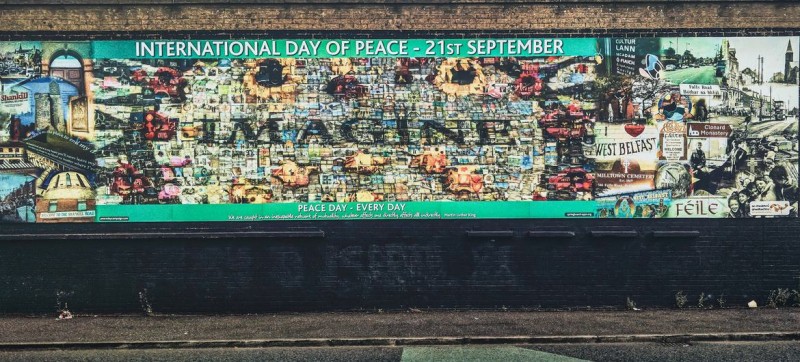UN rights ehttps://cms.news.un.org/en/news-dashboardxperts voice alarm over Northern Ireland professor’s safety after ‘vicious’ online attacks
Contents
A mural on the Peace Wall in West Belfast, Northern Ireland. What independent UN human rights experts are describing as an ongoing smear campaign against a prominent Northern Irish academic and human rights lawyer, “has the potential to spark physical violence” they said on Thursday, amidst increasing polarization once more between nationalists and unionists, following the United Kingdom’s Brexit vote, and the resulting Northern Ireland protocol. In a press release issued by the UN human rights office, OHCHR, the group of four Human Rights Council-appointed special rapporteurs said that Professor Colin Harvey, the former Commissioner of the Northern Ireland Human Rights Commission, and a member of civic nationalist group, Ireland’s Future, has been targeted by a “vicious online campaign”, connected with his work as a leading academic at Queens University, Belfast.
Ongoing smear campaign against #HumanRights lawyer Colin Harvey threatens academic freedom in #NorthernIreland–UN experts. “Fomenting a narrative that a person is untrustworthy because of their national identity or viewpoint can have dire consequences.” https://t.co/gOeQg2Qhx2 pic.twitter.com/0wAZPSVhVi
— UN Special Procedures (@UN_SPExperts) March 24, 2022
Smears and threats
“His academic credibility has come under attack, and he received hundreds of smears and threats from politicians, journalists and other social media users. His personal security has also been threatened”.
Much of his work focuses on the constitutional future of Northern Ireland, which remains part of the UK, following the withdrawal of the UK from the European Union, and the arrangements that have been made to maintain a frictionless border with the EU, in compliance with the landmark peace deal of 1998 known as the Good Friday Agreement – which mostly ended the period of paramilitary violence known as “the Troubles”.
“The threats seek to discredit his academic standing by making baseless claims he is connected with paramilitary groups or equating his ideas with Nazism,” the experts said.
The UN experts are particularly concerned that the threats are taking place as the public debate over the constitutional crisis facing Northern Ireland, becomes more extreme.
Growing risk of physical harm
Previous physical attacks on leading human rights figures were preceded by campaigns of vilification. “We believe the campaign against Colin Harvey may constitute incitement of national hatred, putting him at risk of physical harm,” the experts said.
They warned that smear campaigns and threats of physical attack against academics could have dire consequences for academic freedom in a country.
Threat to academic freedom
“When attacks are made against legitimate academic work, it deals a blow to democracy, progress and development,” the experts said. “Debate becomes stifled and other academics consider self-censoring or begin to shy away from meaningful debate.”
The experts expressed concern that some influential figures in the country were fueling conspiracy theories about Professor Harvey. “When those in authority take part in smear campaigns, they legitimize attacks from other members of society,” they said.
“Fomenting a narrative that a person is untrustworthy because of their national identity or viewpoint, can have dire consequences, not only on that individual, but on all those who hold similar beliefs or hail from similar backgrounds.
Constructive dialogue
“Northern Ireland knows better than most, the value of conciliation and mutual understanding”, the experts said, calling for discourse in the media and among public officials and private citizens online, “to be held in a constructive and meaningful manner, to preserve peace, security and academic freedom in Northern Ireland.”
Special Rapporteurs are part of what’s known as the Special Procedures of the Human Rights Council. They are not UN staff, and do not receive a salary for their work, and serve in their own individual capacity.

Belfast’s Titanic Quarter in Northern Ireland.



